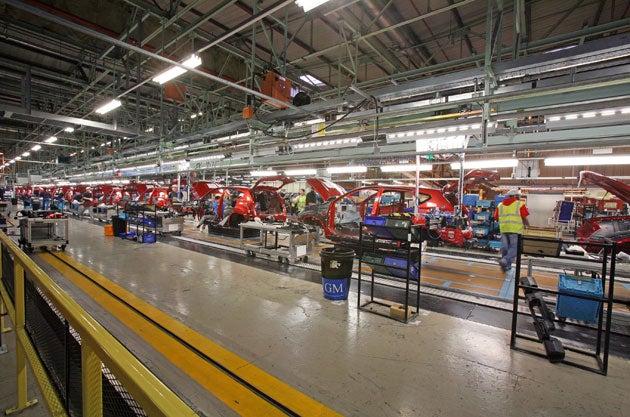Scrappage schemes boost employment at Nissan

Nissan has taken on 100 extra workers at its Sunderland plant in order to meet increased demand for the Micra and the Note arising from the scrappage schemes introduced by European governments under which customers trading in old bangers receive a subsidy towards the purchase of a new car.
The company says it is producing 24,000 more units in the third quarter than originally planned, and the good news comes on top of the recent announcement that Nissan is also going to produce lithium-ion batteries for future electric vehicles in the UK.
However, the new jobs, like 250 previously created at Nissan in May and June, are initially only temporary posts, and this small, perhaps transient, boost in manufacturing employment would appear to be a poor return on the £300 million being invested by the government in the UK scrappage scheme - especially given that some of the boost is the result of demand produced by other countries’ scrappage schemes and would have happened anyway.
Britain’s car industry has focused heavily on premium products during the last ten years, so few factories here apart from Nissan’s Sunderland operation make the sorts of cheap runabouts that are in hot demand under the scheme. Honda’s plant at Swindon is only just getting going after an extended shutdown and won’t start producing the new little Jazz until later in the year, while BMW’s Oxford-built Mini is still pricier than most other small cars, even allowing for the newly-introduced stripped-out "First" version.
Instead, the big winners under the scrappage scheme appear to be imports such as Hyundai’s impressive little i10 (built in India), and Ford’s Ka (Poland) and Fiesta (Germany and Spain).
Of course, the UK scrappage scheme is also helping to preserve jobs at British car dealerships even when it is used to buy imported cars but the government’s previous policy has been not to use taxpayers’ money to subsidise retail jobs. Why is your local Hyundai dealership worth saving with public funds - but not your local pub, post office or Woolies?
Subscribe to Independent Premium to bookmark this article
Want to bookmark your favourite articles and stories to read or reference later? Start your Independent Premium subscription today.

Join our commenting forum
Join thought-provoking conversations, follow other Independent readers and see their replies